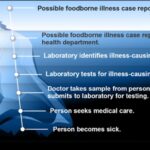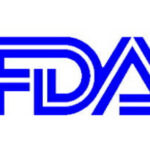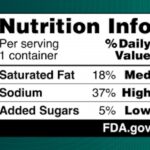Get Super Bowl food safety tips from the USDA to make your party the best ever. When you are entertaining, food safety is more important than ever. And you have to consider the health issues and ages of all of the people you invited. If you are getting takeout or having food delivered, make sure that it is quickly refrigerated or placed in the oven until your guests arrive. Pizza, chicken wings, sliders, chili and other favorites can't stay at room temperature for more than two hours, no matter how hot they were to begin with, or bacteria will grow. The danger zone is between 40°F to 140°F. In that zone, bacterial counts can double every 20 minutes. And the same rule applies to chilled foods. Get them back into the fridge after two hours; that time shrinks to one hour if the … [Read more...]
GAO Study of Foodborne Illness in U.S. Finds Issues
The Government Accounting Office (GAO) is responsible for examining how taxpayer dollars are spent and provides Congress and federal agencies with objective, non-partisan, fact-based information. It is an independent, non-partisan agency that works for Congress. The latest GAO study of foodborne illness in the United States has found some issues and recommends a national food safety strategy. The CDC states that only a small proportion of foodborne illnesses are diagnosed and reported to public health authorities every year. For Salmonella, only one case is reported for every 29 illnesses that actually occur. The report finds that the safety and quality of the U.S. food supply is covered by at least 30 federal laws administered by 25 agencies. Some goals aimed at reducing … [Read more...]
FDA Requires Pet Food Manufacturers to Add Bird Flu to Plans
The FDA is requiring that pet food manufacturers must add bird flu to their food safety plans after the virus was found in some raw products. This applies to all manufacturers of cat and dog foods that are covered by the FDA Food Safety Modernization Act Preventive Controls for Animal Food and that use uncooked meat, unpasteurized milk, or unpasteurized eggs in their products. The FDA is issuing this update to make sure that these manufacturers are aware of information about the new H5N1 hazard that is associated with these types of products. The FDA is tracking cases of H5N1 in domestic and wild cats in the states of California, Colorado, Oregon, and Washington that are associated with eating contaminated food products. At this time, the H5N1 virus can be transmitted to cats and … [Read more...]
FDA Releases Allergen, Food Safety, and Plant Based Labels
FDA releases allergen, food safety, and plant based labeling guidelines to help industry understand and comply with regulations. The food safety guidelines cover low moisture ready to eat foods. Food Allergens This guidance covers food allergens, including questions and answers about food allergen labeling requirements, the labeling of tree nuts, sesame, milk, eggs, incidental additives, highly refined oils, dietary supplement products, and certain specific packing and labeling situations, such as individual units within a multiunit package. The FD&C Act requires that any food that is made from two or more ingredients must declare each ingredient by its common or usual name. But consumers may not be familiar with those names, and may not recognize that the ingredients contain … [Read more...]
FDA Releases Strategy for Control of Viruses in Berries
FDA has released a prevention strategy for the control of viruses in berries. This is in response to hepatitis A and norovirus outbreaks linked to fresh and frozen berries in the U.S. and globally. There has not been a virus outbreak in the United States in 35 years that was linked to berries that were domestically produced. The outbreaks have been linked to imported fresh and frozen berries, including an outbreak linked to Made With frozen strawberries. The berries were grown in Baja California. The list of hepatitis A outbreaks linked to berries is long. In 2019, the FDA began sampling frozen berries for hepatitis A and norovirus. This new strategy seems like a logical continuation of that work. Contamination of these berries can occur in several ways, including illnesses in … [Read more...]
Consumer Reports: USDA Should Strengthen Its Salmonella
Consumer Reports has asked the USDA to strengthen its Salmonella framework to reduce consumer illnesses from poultry. CR has filed a comment letter with that agency, which states that poultry contaminated with Salmonella bacteria above a certain level should be kept off the market and recalled. Chicken accounts for amore Salmonella illnesses than any other food category. And the rate of those illnesses has been increasing over the last ten years. Brian Ronholm, director of food policy at Consumer Reports said in a statement, "Salmonella infections from poultry have increased steadily over the past decade and sicken hundreds of thousands of Americans every year. The USDA’s current performance standards to reduce Salmonella infections from poultry have failed to drive down … [Read more...]
FDA Proposes Updates to Front of Package Nutrition Labels
The FDA is proposing updates to front of package nutrition labels to help consumers make healthier choices. The rule would require a front-of-package (FOP) nutrition label on most packaged foods. These labels would give consumers more information at a glance. This label is called the "nutrition info box," and it would complement the longer label already on these products that is usually found on the back or side panel. The difference is that the new label would amplify the most important nutrient information about saturated fat, sodium, and added sugars. The contents would be labeled "Low," Med," or "High," to give consumers information at a glance. These descriptive terms follow federal dietary recommendations and may encourage consumers to choose more nutrient-dense … [Read more...]
FDA Revokes Authorization For Use of FD&C Red Dye No. 3
The FDA has revoked authorization for the use of FD&C Red Dye No. 3 in food and ingested drugs, based on the Delaney Clause. That clause prohibits FDA authorization of a food additive or color additive if it has been found to induce cancer in humans or animals. The FDA revoked the authorization for some synthetic flavors based on this Clause in 2018. Two studies showed that cancer in laboratory male rats that were exposed to high levels of FD&C Red No. 3 occurred due to a rat-specific hormonal mechanism. This mechanism does not exist in humans. Relevant exposure to this color for humans is typically much lower than the exposures that caused the cancer in rats. Claims that the use of FD&C Red No. 3 in food puts people at risk are not supported by available scientific … [Read more...]
Possible Hepatitis A Exposure at Rio Grande in Boulder, CO
There was a possible hepatitis A exposure at the Rio Grande Mexican Restaurant in Boulder, Colorado according to the Boulder County Public Health (BCPH). That facility is located at 1101 Walnut Street in Boulder. The possible exposures took place on December 30, 2024 and January 5, 2025. Health department officials have found that there is no ongoing risk to the public because the restaurant acted quickly to ensure the safety of staff and patrons. But anyone who drank one or more of these beverages on those dates may have been exposed to the virus. Plain fresh squeezed OJ Mimosa with fresh squeezed OJ Michelada with fresh lime juice Mimosarita with fresh squeezed OJ Big Tex margarita with fresh lemon and lime juice Barrel-Aged Big Tex margarita with fresh lemon and … [Read more...]
FDA Alerts About Use of Amanita Muscaria in Food
The FDA is alerting industry and consumers about the use of amanita muscaria, its extracts, and some of its byproducts, including muscimol, ibotenic acid, and muscarine, in food. The agency has decided that these ingredients do not meet the standard for use in food and that their use as ingredients may be harmful. People should avoid eating foods made with these ingredients. One of the products that did use amanita mascara extracts was Diamond Shruumz. Muscimol, a substance found in Amanita muscaria and related mushrooms, was found in nine Diamond Shruumz chocolate bar samples and four infused cones samples. Those products were linked to a deadly outbreak that sickened at least 180 people and hospitalized 73. There are three deaths potentially associated with that outbreak. These … [Read more...]













